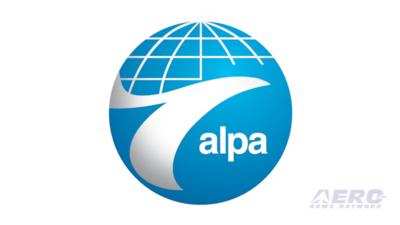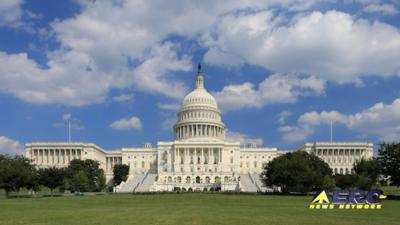Reason vs Rationale
As the U.S. Senate considers 2023’s FAA Reauthorization Bill, a proposed amendment to the legislation submitted by South Dakota Republican Senator John Thune has proved a point of contention between aviation industry stakeholders.

In a rousing letter to the U.S. Senate et al., ALPA president Captain Jason Ambrosi argued persuasively that Thune’s amendment—formally, the Thune Enhanced Qualification Program (EQP) Amendment—gravely and incontrovertibly threatens aviation safety.
Captain Ambrosi set forth:
“Dear Senator:
“The 74,000 airline pilots represented by the Air Line Pilots Association, International (ALPA) unequivocally oppose the Thune EQP amendment to the Senate FAA Reauthorization bill and urge you to vote NO. This poison pill amendment undermines the current aviation safety regime that has resulted in the safest period in air travel in history.
“The Enhanced Qualification Program or EQP will weaken the pilot training and qualification requirements established by Congress and overseen by the FAA. Simply put, the EQP proposal intends to allow pilots to meet the requirements for an airline pilot certificate with fewer hours of experience, in a shorter period of time, and under a less structured curriculum than is currently required. Why, when we have reduced the number of airline passenger fatalities by 99.8-percent since the current pilot training and qualification rules were implemented, would such a roll back even be considered?
“The EQP amendment would provide 250 hours of credit toward a Restricted Air Transport Pilot (R-ATP) certificate after completion of an air carrier-developed 10-day training course. Under this proposal, an airline pilot could be flying passengers in FAR 121 operations with as few as 500-hours of training. It was under this type of scenario pre-2010 that airline accidents were rampant. It was this shameful era of training pilots quickly and on the cheap and the resultant series of tragic accidents, including Flight 3704 outside of Buffalo, NY, that led Congress to pass the Airline Safety and FAA Reauthorization Act of 2010 which clearly outlined robust new training requirements for our nation’s airline pilots. The law and resultant regulations worked and, since then, there have been only two fatalities on passenger airliners.
“EQP is unnecessary and unwise. In fact, the FAA rejected just such a proposal this year. Republic Airway’s Lift Academy is an EQP training program which sought credits against the ATP but was rejected outright because of its safety deficiencies. The Thune amendment should similarly be rejected.
“The proposal codifies a training regime that is unstructured and introduces an unacceptable risk to our air transportation system. For example, the proposal does not define the specifics of the training proposal allowing for substandard course material and the integrity of the program in question. It does not define when the training would be provided, meaning it could run concurrently with airline initial training resulting in no additional training at all. It does not specify the number or type of simulator training required, including types of emergency training. This EQP proposal applies only to a restricted ATP, reducing the current credit for military, university or two-year college program even further from 750/1000/1250 hours to 500/750/1000 without regard to the specifics trained. This is simply an excuse to bestow an arbitrary 250 flight hours of credit without consideration for safety.
“Our aviation system transports billions of passengers safely and efficiently. Our nation’s highly-trained and experienced professional airline pilots are key to maintaining our gold standard of safety. I urge you to reject this amendment."
Sincerely,
Captain Jason Ambrosi
President, Air Line Pilots Association, International

Founded in 1931 and representing over seventy-thousand pilots in the employs of forty U.S. and Canadian airlines, the Air Line Pilots Association, International (ALPA) is the world’s largest and most influential pilot union.
On 21 June, ALPA’s position was sharply contradicted by the Regional Airline Association (RAA)—a trade association representing 17 North American regional airlines and 280 associate, non-airline members.
In a letter of her own, RAA president and CEO Faye Malarkey Black excoriated ALPA’s opposition to the Thune amendment, setting forth:
"Dear Senator on the Senate Committee on Commerce, Science, and Transportation:
Along with our members, RAA is committed to working cooperatively towards a long-term FAA bill that protects the highest level of safety, advances pilot training, and helps ensure the most qualified pilots are providing air service to communities of all sizes. We look forward to continuing to work with Chairs Cantwell and Duckworth and Ranking Members Cruz and Moran along with every Committee Member to achieve these goals.
"Air service across the country is disappearing due to a shortage of airline pilots. Today, 42 U.S. states have much less air service than before the pandemic. Network carriers have exited 73 markets since 2019, under a debilitating loss of regional lift. 321 airports have lost air service, on average, losing 26-percent of their flights. 61 airports have lost more than half their flights and 16 airports have lost all flights.
"A bipartisan group of Senate Commerce Committee Members have worked with stakeholders, constituents, airports, and community leaders to draft sound amendments to address the pilot shortage. These measures have the support and votes needed to pass in the Committee. Unfortunately, the Air Line Pilot Association (ALPA) opposes them, and the Senate Majority Leader will not allow the mark-up to be scheduled until these issues are resolved. We can speculate on why ALPA doesn’t want to solve the pilot shortage. However, Senate leaders must ensure a labor union representing the wealthiest work group in America does not exert undue influence on what can and cannot be considered by the U.S. Senate.
"I respectfully write today to urge rescheduling of the stalled FAA mark-up, and ask that Senators be allowed to offer, debate, and vote on two air service preserving and safety enhancing amendments. The first amendment meriting consideration would raise the pilot retirement age from 65 to 67—the age where most Americans become fully eligible for their social security benefits. This bipartisan amendment addresses ageist policies that have no basis in science. No other profession in the world is assessed as extensively and as frequently as pilots, who undergo frequent, rigorous medical and competency screenings to assure fitness to fly. Raising the age keeps experienced, mentor captains in the flight deck, supporting career entry and progression of the next generation of first officers, who cannot fly without Captains. Raising the retirement age also allows time for necessary, longer-term solutions to the pilot shortage to mature.
"The second amendment relates to expanding and improving the pilot training pipeline. The pilot shortage has been growing for decades, driven by inequitable and insufficient access to pilot training. A key constraint has been the FAA’s inaction in advancing pilot qualification standards envisioned under the Airline Safety Act of 2010 (2010 Airline Safety Act), which directed FAA to approve additional structured training pathways when doing so enhanced safety. FAA published its First Officer Qualification (FOQ) rule in 2013 and created three training pathways at that time, indicating a review of future data would be forthcoming. In the decade since, FAA has taken no action despite huge advancements in pilot training and technology and despite multiple updates of the same data it used to craft the rule, each showing pilot proficiency has declined, not improved, due to an overreliance on flight hours.
"Today, most pilots lack access to structured training programs and instead use hours-based pathways with no additional training. The amendment in question prompts the FAA to create a detailed Enhanced Qualifications Program (EQP) that allows airlines, with strict FAA oversight and approval, to offer more of the pilot qualification pathways that feature training and a higher level of safety. The amendment is based on recommendations of FAA’s own safety subject matter expert Air Carrier Training Aviation Rulemaking Committee (ACT ARC) in 2016. This recommendation was thoroughly considered and approved by a broad cross-section of government and industry aviation safety experts, including ALPA. In fact, ALPA not only participated in, but co-chaired the working group and voted to recommend the pathway it now decries as “unsafe.” Facing political pressure similar to what we are seeing today, FAA ultimately took no action on these expert recommendations.

"Like the expert recommendations it is based upon, the proposed EQP amendment would add, not reduce, flight training. The amendment also explicitly states that it does not change the FOQ Rule or 1,500-hour requirement in any way. Flight time remains a key component of pilot qualifications. However, today’s flight time requirements have no stipulations or associated training, and this flight time is accumulated after pilots complete training. These flight hours are unsupervised and unstructured, taking place in aircraft and environments that are nothing like commercial flying, where pilots have no opportunity to practice relevant skills. Meanwhile, the past decade has brought vast advancements in academic training programs, including flight simulation technology. The structured training environment offers the only way to expose pilots to risky situations they will never encounter building hours today. Flight instructors can use flight simulators and advanced flight training devices to build a
robust curriculum to train on emergencies, adverse weather conditions, and crew resource management techniques in a multi-crew environment. This allows mastery of crucial, commercial flying skills that are impossible to replicate in small, slow, single-engine aircraft. Simulators additionally keep performance data for evaluation of a pilot’s performance as skills are mastered. Any situation can be loaded onto and practiced in an advanced flight simulator, including the “Miracle on the Hudson,” both 737 MAX accidents, and the Colgan accident.
"Keeping stale, out-of-date standards that ignore advancements in U.S. technology and training expertise does nothing to advance safety. And ALPA’s safety allegations are provably false. Meanwhile, the worsening pilot shortage carries its own safety risk. When travelers lose flights, they drive. Americans already drive more today than they did during the height of the pandemic. Tragically, 42,795 people lost their lives to motor vehicle crashes last year. These harms, like air service loss, fall disproportionately on rural communities. About half of our country’s fatal crashes occur on rural roads, yet just 19-percent of the U.S. population lives in rural areas. The pilot shortage has had devastating consequences for smaller communities, where economies rise or fall based on the quality of the local infrastructure. Inaction on the pilot shortage, as one Democratic mayor said last month, is what “people in the Midwest think of when they say Washington doesn’t think of
them.”

"Again, I respectfully request that Senators on the Committee think of their constituents and urge a fair discussion and vote on amendments that advance safety and support more pilot training pathways. Please don’t allow the demands of a special interest group with collective bargaining goals to undermine safety advancements and our nation’s connectivity. I urge the Committee to allow a debate and vote on these important, bipartisan amendments on their merits.
"I thank you for your consideration and our team stands ready to answer any questions you may have."
Sincerely,
Faye Malarkey Black
President & CEO, Regional Airline Association (RAA)
 ANN's Daily Aero-Term (04.25.24): Airport Rotating Beacon
ANN's Daily Aero-Term (04.25.24): Airport Rotating Beacon ANN's Daily Aero-Linx (04.25.24)
ANN's Daily Aero-Linx (04.25.24) Klyde Morris (04.22.24)
Klyde Morris (04.22.24) Airborne 04.24.24: INTEGRAL E, Elixir USA, M700 RVSM
Airborne 04.24.24: INTEGRAL E, Elixir USA, M700 RVSM Airborne 04.22.24: Rotor X Worsens, Airport Fees 4 FNB?, USMC Drone Pilot
Airborne 04.22.24: Rotor X Worsens, Airport Fees 4 FNB?, USMC Drone Pilot






